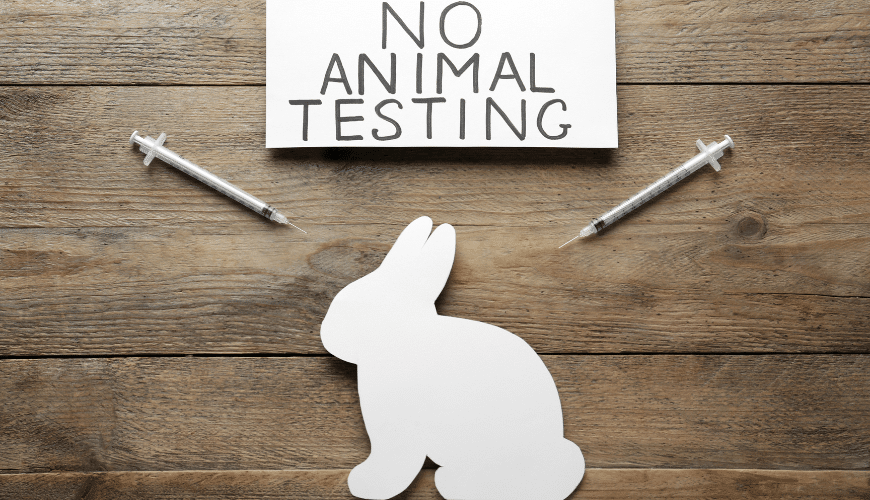
State legislatures across the country have introduced bills to protect animals from experimentation. These bills range from prohibiting the sale of cosmetics that use animals in testing to requiring non-animal methods be used in place of animal experimentation. CCS is happy to support bills that aim to protect humans, animals, and the environment, especially those that focus on improving the biomedical research safety and toxicity fields. CEO and Co-Founder, Dr. Aysha Akhtar provided oral testimony in front of the Maryland State Senate Education, Energy, and the Environment Committee in support of SB0761 on March 8th.
SB0761 calls for multiple changes for animal testing in Maryland including:
- Requiring each testing facility in the state to be licensed by the Department of Agriculture to use animals in research, education, or testing
- Establishing requirements and prohibitions for the use and treatment of dogs and cats by a testing facility
- Establishing the Animals in Research Fund to fund a State Inspector of Animal Welfare in the Department of Agriculture
- Prohibiting a testing facility from using traditional animal test methods under certain circumstances including when there is an approved human-relevant method available.
Last year, Dr. Akhtar provided testimony in support of another Maryland bill, HB626, that became law. HB626 created the Human-Relevant Research Fund to provide grants to public and private institutions in Maryland to advance the discovery, creation, and use of human-relevant research techniques in the medical sciences. This was a first of its kind bill and established Maryland as a leader in the promotion of human-relevant research.
Eleven states including Maine, Hawaii, and Illinois have already passed laws that ban the sale of cosmetics tested on animals and/or the use of animal testing for cosmetics. A bill in Washington from this session was just signed into law by Governor Inslee, and hopefully the bills below will follow in the footsteps of those states.
Arizona: SB 1203
Vermont: H.524
Certain states aim to improve the transparency surrounding the animal testing conducted in their state. For example, last year Oregon passed a law that requires Oregon Health and Science University to make the information on the number of nonhuman primates used in research public. Language to improve the transparency of animal testing facilities and activities are often coupled with bills that aim to also improve the conditions of animals in testing or require animals to be offered for adoption rather than being euthanized after research.
Below are the states and their aims that are working on improving transparency of the conditions for animals and the bills to require the adoption of animals.
Adoption + Transparency
Indiana: HB 1292
Colorado: SB 24-067
Transparency
Missouri: SB 1319
Maryland: SB 0761
* This bill died in committee.
While these bills aim to improve the conditions of animals being used in research, they fall short of incentivizing or directly requiring a shift to human-relevant research. The CCS policy team is supportive of these bills, but hope to see more bills similar to HB626 passed in Maryland last year. The following are the current bills that aim to protect animals used in research promote a switch to human-relevant research methods.
Mandating the Use of Human-Relevant Research When Available
New Hampshire: SB 97
With more states showing intent to protect animals used in research and some pushing for a shift to human-relevant research, we hope that federal law will follow suit. The FDA Modernization Act that passed in 2022 was a great start, but more concrete requirements to use and develop human-relevant research methods are necessary.

